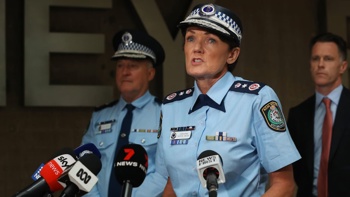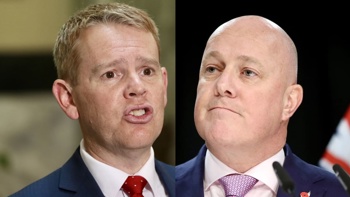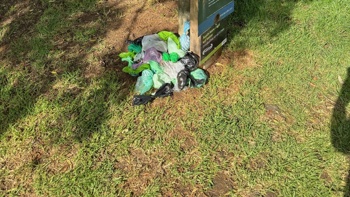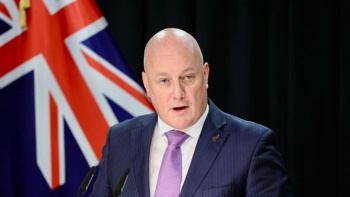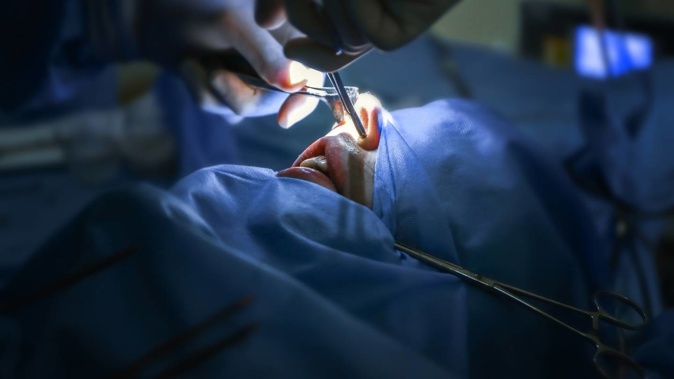
An 8-year-old boy has had nasal surgery performed on him despite his parents' refusal to give consent to the procedure.
It wasn't until their son was due to be discharged from the private clinic following other procedures that were consented to for his ongoing breathing issues, that his parents noticed there was "some ooze" coming from his nose.
At this point, a nurse noted another anomaly - the boy's adenoids had not been removed despite that procedure being a part of the operative plan.
A "chain of errors" has since been identified by the Health and Disability Commissioner (HDC) in the case of the boy, after his parents complained to the watchdog.
Following the investigation into the matter, the clinic and the operating surgeon have been found in breach of the Code of Health and Disability Services Consumers' Rights (the Code).
The commissioner's report, which does not name any of the parties, highlights the need to ensure a patient's right to decide to refuse treatment is upheld, and the importance of providing appropriate information in order to obtain informed consent.
The report states the family first met with the otolaryngologist, referred to in the report as Dr A, in December 2019 to discuss treatment of the boy's breathing and allergies.
The parents agreed and consented to surgical treatment for their son, which was to take place in April 2020.
The consented and signed procedures included the removal of the boy's adenoids and tonsils, cleaning of his ears, and imaging of his voice box, windpipe, and ears.
In February 2020, Dr A wrote to the parents recommending that the boy undergo the cautery of his inferior turbinates (CIT) at the same time as the other planned procedures.
The CIT procedure involves making an incision or cauterising the swellings on
the side walls of the nose (the turbinates).
The following month, the otolaryngologist's clinic wrote to the mother to add the CIT procedure to the consent form and have it signed. However, the parents refused the CIT procedure and this was acknowledged by staff at the clinic.
Despite the acknowledgement, the email in which the CIT procedure was declined was not placed in the boy's electronic file, which meant Dr A was unaware the boy's parents had refused the procedure.
When it was time for the boy's surgery in July 2020, following a postponement due to Covid, Dr A consulted his records and recommendations in boy's file, which still included the CIT procedure.
Before surgery, there was a miscommunication between the mother and Dr A about consent for the procedures to be performed. This resulted in the CIT procedure being written on the consent form and signed, contrary to the parents' understanding that they had not consented to it.
The mother told the HDC "we laughed and said we wouldn't understand the medical jargon, and repeated its fine as long as it's only ear check, vocal cord check, adenoid and tonsil removal. [Dr A] confirmed this was what he wrote."
The CIT procedure was performed, but the boy's adenoids were not removed because only an insignificant amount of adenoid tissue was present.
After the surgery, a brief discussion regarding the outcome took place between Dr A and the parents before the boy was transferred to another ward for recovery and monitoring.
Around six hours later, the parents became aware for the first time that, contrary to their expectation, their son's adenoids had not been removed and the CIT procedure had been performed.
Following the investigation, the Commissioner considered the clinic was responsible for ensuring that the parents' decision to refuse the CIT procedure was actioned and communicated to Dr A.
Because this "critical information" was not communicated, the clinic had breached the Code.
The clinic had advised the HDC that when new clinical information is received, the usual
process was to email the information to Dr A and to file the email in the patient notes.
The clinic told HDC that there was "no acceptable explanation" as to why the email was not saved in the boy's electronic file, but said that the timing of the first Covid lockdown had caused considerable stress to clinic staff.
"This was a very regrettable act of omission during a crisis period."
The clinic also stated that it was their usual practice for staff to verbally follow up with Dr A in order to confirm that the email had been received and actioned.
It acknowledged that Dr A was "not fully and clearly informed verbally about [the boy's] parents' decision"
Dr A had also breached the Code, the Commissioner found, as, despite his lack of knowledge of the family's refusal of consent due to the clinic's systems error, he retained overall legal responsibility and accountability for obtaining informed consent to the procedures.
Further, the Commissioner was critical of Dr A's post-operative
communication with the family regarding his decision not to remove the boy's adenoids.
He admitted he had not told the boy's parents in their postoperative briefing that the adenoids had not been removed.
The otolaryngologist also accepted he did not provide the family with sufficient information about the CIT procedure and that this was followed by a miscommunication on the day of surgery about whether the procedure was to be included in the proposed procedures to be undertaken that day.
He acknowledged the seriousness of the parents' concerns, and told the HDC he was very sorry they found his consent process lacking its "usual rigour" and that.
"Dr A explained that as a result of this complaint, he has made meaningful changes to his and the clinic's practice," the report stated.
The boy's parents told the HDC they want accountability and acknowledgement that things could have gone better for their son.
"They stated that there were 'multiple opportunities' to correct their understanding, and that the informed consent process was 'patchy at best'," the report stated.
"They hope the concern raised can lead to a review of the process and prevent something
similar happening to another young patient."
The Commissioner recommended that the clinic provide a written apology to the family, and review the effectiveness of its new policy, which requires further consultation with a patient when there is a delay greater than three months between the initial consultation
and the day of surgery.
Take your Radio, Podcasts and Music with you






